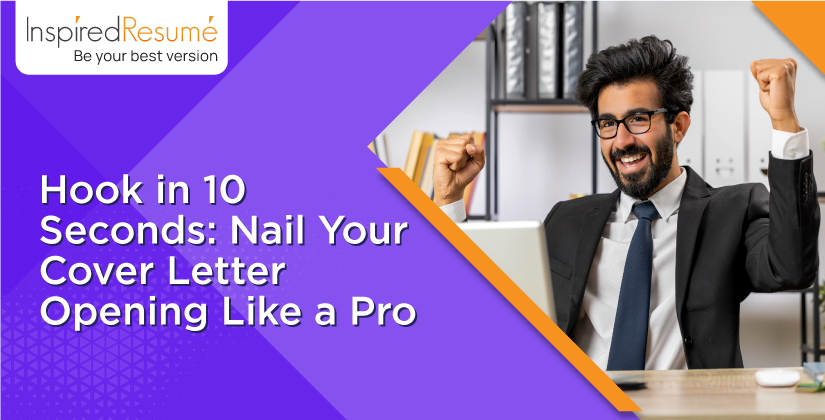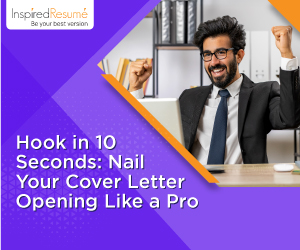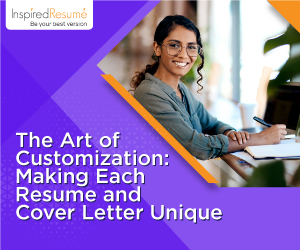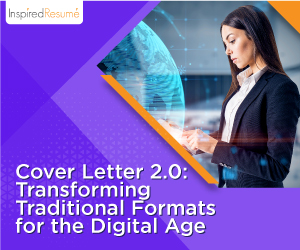Picture this: Priya, a seasoned hiring manager, sifts through a stack of applications, eyes glazing over generic phrases like "Enthusiastic recent graduate seeking..." Suddenly, a sentence leaps off the page:
"The worn copy of 'To Kill a Mockingbird' on your office shelf during our recent virtual session resonated deeply with my own commitment to justice – a principle I've applied at [Previous Company/Project] by..."
Priya pauses. This isn't just another form letter. This applicant noticed something, connected on a human level, and subtly showcased relevant skills – all within the crucial first few seconds. This is the power of a thoughtful, human-centered cover letter opening, a stark contrast to the robotic predictability of AI-generated text.
As the job market continues to evolve, making a memorable first impression is essential. While AI can produce grammatically correct text, it often lacks the nuance and personal connection that a human writer can weave into their words. Your cover letter is your first handshake – a chance to showcase your skills, personality, and genuine interest in the role.
Are you looking for a Professional Cover Letter Writing Service? GET IT HERE!
The Perils of the Generic and the Allure of the Specific
Think about the sheer volume of applications hiring managers face. They're looking for reasons to disqualify candidates just as much as they're looking for reasons to move them forward. A generic opening statement signals a lack of effort and a failure to truly understand the specific needs and culture of the company. It blends into the sea of sameness, easily overlooked.
Conversely, a compelling opening that demonstrates you've done your research and genuinely connects with the company's mission, values, or even a specific detail you've learned, immediately sets you apart. It shows you're not just sending out a mass email; you've taken the time to understand them.
Beyond the Template: Strategies for Human-Centered Openings
1. The Shared Value Hook: Identify a value or principle that resonates with both you and the organization. This could be gleaned from their mission statement, recent news, social media activity, or even an interaction you had with someone at the company.
Example: "Your commitment to community outreach, as highlighted in your annual report, aligns with my experience in organizing volunteer initiatives at [Previous Company]."
2. The "Aha!" Moment Connection: Did something specific about the job description or the company's work trigger a moment of recognition or excitement for you? Articulate that connection in your opening.
Example: "Seeing that your team at [Company Name] recently launched an AI-driven customer support tool instantly reminded me of my project at [Previous Company], where we enhanced client satisfaction through machine learning algorithms."
3. The Problem/Solution Teaser: Briefly allude to a challenge the company might be facing and subtly hint at your ability to contribute to the solution.
Example: "In a market saturated with digital learning platforms, I admire how [Company Name] differentiates itself through tailored content. At [Previous Company], I led a similar initiative to enhance personalization, resulting in a 20% increase in user engagement."
4. The Anecdotal Introduction (Use with Caution): A brief, relevant anecdote that showcases a key skill or quality can be powerful, but it needs to be concise and impactful.
Example: "At my first job fair, a recruiter from [Company Name] described how adaptability was a core team value. That conversation sparked my interest in your company, and since then, I've cultivated that skill through diverse roles in project management."
5. The Enthusiastic and Specific Statement: Express genuine excitement about a specific aspect of the role of the company, while avoiding generic enthusiasm.
Example: "The opportunity to join [Company Name]'s data analytics team excites me, especially given my experience leading cross-functional data projects that improved reporting accuracy by 30%."
Cover Letter 2.0 : Transforming Traditional Formats for the Digital Age
The Psychology Behind the First Few Words: Why They Matter More Than You Think
When it comes to making a great first impression, understanding the psychology of human behavior is key. The opening lines of your cover letter are often the only part that hiring managers truly "read" with full attention. Why? Because these first few sentences trigger immediate judgments and set the tone for the rest of your application. Research has shown that people make decisions within the first few seconds of meeting someone or reviewing something. That’s why your opening lines must engage their interest from the get-go.
By crafting an opening that grabs attention—whether through a shared value, a meaningful connection, or a unique insight—you spark curiosity. This doesn't just make your application stand out; it also influences the reader's perception of you as someone who is thoughtful, capable, and well-prepared. The more human and relatable you can make those first words, the more likely you are to keep your hiring manager engaged throughout the rest of your cover letter.
In short, understanding how the human brain processes information in the first few seconds can give you the edge you need to ensure your cover letter opens the door to opportunity.
The Human Touch: It's About Authenticity and Connection
Ultimately, crafting a compelling cover letter opening with a human touch boils down to authenticity and a genuine desire to connect. It requires you to move beyond simply listing your qualifications and instead articulate why you are truly interested in this specific opportunity and how your unique experiences and values align with the organization.
AI tools can help proofread and generate basic drafts, but they can't replicate the genuine insight, empathy, and personal connection that a human writer can bring to the table. Invest the time and effort to craft an opening that truly reflects your personality and your sincere interest. That initial 10-second impression can be the difference between your application landing in the "maybe" pile or the "let's interview this person" stack.
Final Thought: Let Your Voice Shine
The essence of a powerful cover letter lies in its ability to convey your unique perspective and enthusiasm. Rather than relying solely on templates or automated suggestions, take the time to craft an opening that is distinctly yours. Show that you have thought about why you want to work with the company and how your experiences can add value. Authenticity is not just appreciated – it's remembered.
The Art of Customization: Making Each Resume and Cover Letter Unique




